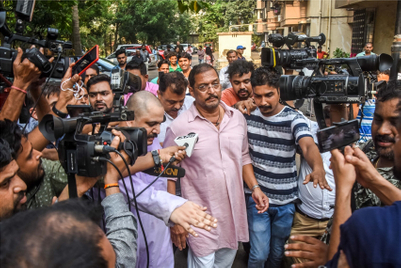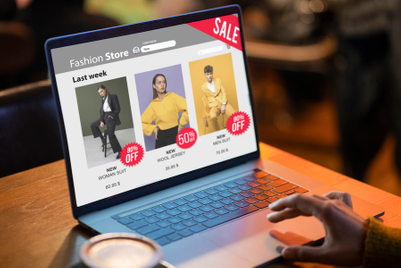
The freelance senior creative who told me he had an ex-girlfriend with the same surname as mine mimed how he went down on her. He leered at me. And as I went to leave, he decided to grope me. Looking around in disbelief, a colleague who was present told me I asked for it. That I’d invited it because I was pretty. Because: "Look at you." Because they knew I was single and had seen me on Tinder.
He would stare at me while I worked. I had to move my Mac screen so he couldn’t see my face and I could get my job done. He held the door open and stood in the middle so I had to squeeze up against him to get past. This isn’t agency culture. This is rape culture.
I reported it and had a sit-down meeting with the chief creative officer. He spoke to the accused and the colleague who was present. Unsurprisingly, they denied any knowledge. In a game of "he said, she said", they won, despite my creative partner corroborating my account. I was told all of this in a Skype follow-up. You know what that means? I have nothing in writing and they hold all the power.
The CCO asked me what I wanted to happen. I said that if the agency followed a zero-tolerance policy and code of conduct, the guy should be fired. I was told this wouldn’t be possible. Instead, I was told they would "put a woman in place" so any future victims would have someone to talk to. And then I was asked to keep it quiet.
Here’s what I learned:
- Acknowledge actions for what they are and use the appropriate language. I’ve only just started to use the words "harassment" and "grope".
- Get everything in writing. Don’t discuss it over a call or on Skype. It’s not done as "a convenience" to you; it’s done so you don’t have any physical evidence.
- Bring a witness to any meeting you have regarding harassment – someone you trust who will be able to support you. Someone who can call bullshit when a contractual loophole or non-disclosure agreement gets mentioned.
- If anyone witnesses the harassment, ask them to corroborate your story. My creative partner was willing to stick up for me. And for that I’m forever grateful.
- To those who do witness it – remember it’s not someone "having a laugh"; it’s wrong. Call them out on it. You’ll potentially be saving a lot of people.
- Ask for help. I wish I’d known about Nabs at the time, so I could have had professional support. Go to the organisation. Consider joining Bloom, a strong group of adland changemakers who provide inspiration and support for women in our industry.
- Be kind to yourself. It’s easy to doubt your experiences when so much of society and the media shifts the spotlight on to the person sharing their story, rather than the perpetrator. But they weren’t there – you were.
Nabs aims to improve the well-being of those working in the advertising industry and can be found here.
This story was submitted to Campaign UK and published anonymously. Campaign editors globally are working together on this issue and will protect anonymity. If you have an experience you think should be shared, help our industry take action by writing to [email protected].


.jpg&h=334&w=500&q=100&v=20250320&c=1)
.jpg&h=334&w=500&q=100&v=20250320&c=1)


.jpg&h=334&w=500&q=100&v=20250320&c=1)
.jpg&h=334&w=500&q=100&v=20250320&c=1)



.jpg&h=334&w=500&q=100&v=20250320&c=1)
.jpg&h=268&w=401&q=100&v=20250320&c=1)



.jpg&h=268&w=401&q=100&v=20250320&c=1)

_3.jpg&h=268&w=401&q=100&v=20250320&c=1)
